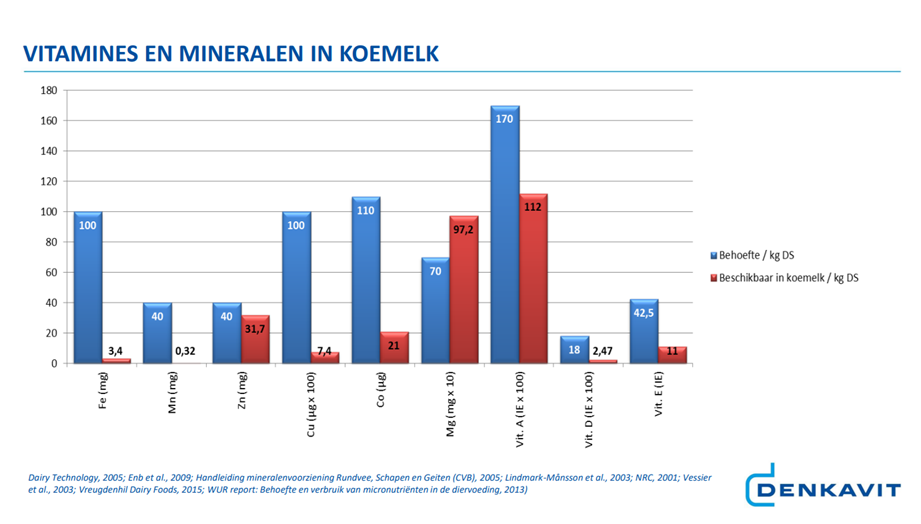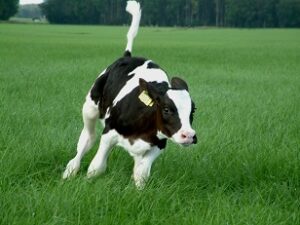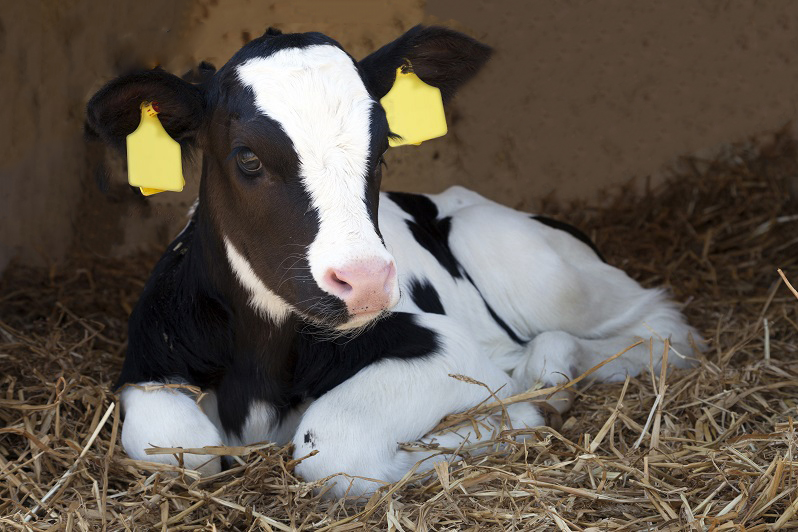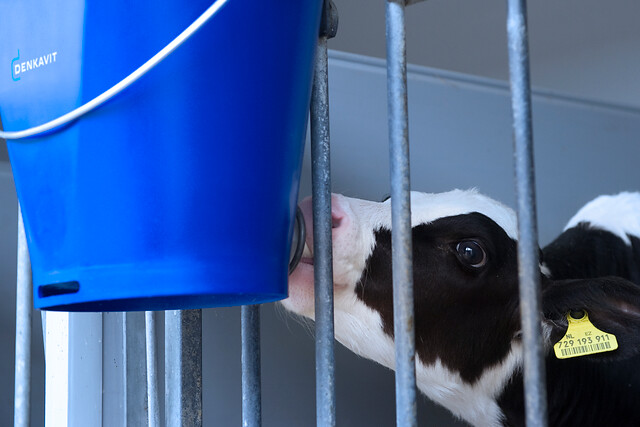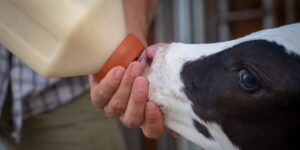Why acidify milk?
Acidification of cow’s milk inhibits the development of environmental bacteria. Acidification also has a positive effect on the digestion of milk in the calf’s body. It can help the coagulation of casein in the abomasum, making it easier for the calf to digest the milk.
Extra minerals and vitamins
In addition to acidifying the milk, the calf benefits from additional minerals and vitamins to stimulate the calf’s immune system and growth. The mineral and vitamin status of the calf is highly dependent on the transfer of these components through the placenta, colostrum and milk during pregnancy. Milk is rich in calcium, phosphorus, potassium and chlorine, but is deficient in iron, manganese, copper, cobalt and vitamins D and E. See the table below for more information.
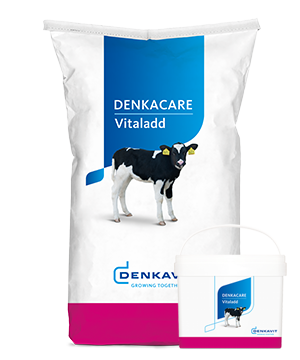
All year round, but especially during the summer months, calves fed on cow’s milk benefit from fortification with Denkacare Vitaladd. Vitaladd has been specially developed to acidify cow’s milk and enrich it with vitamins and minerals. This has a positive effect on calf health and performance.
Want to know what Vitaladd can do for you?
▶ You can find more information on the Vitaladd page.



